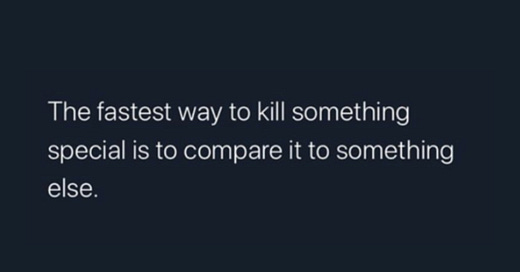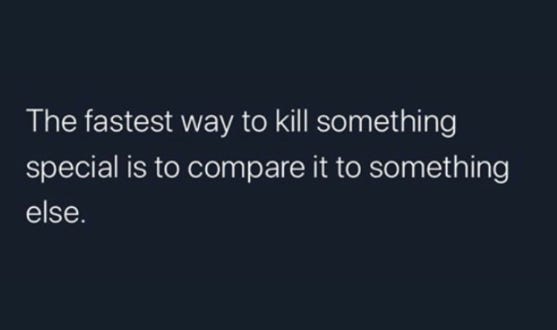The Comfort of Blending In
I removed everything from my Instagram feed this week, and it felt so good. As each post disappeared into the archive, it felt like I was removing the traces of the versions of me I had created to blend into whatever situation I was in.
There's an uncomfortable amount of growth and personal development that happens in your teens and 20s. But layer on top of that a late autism diagnosis, and things get a bit more complicated—at least they have for me. Just when I thought I knew what I liked and disliked, how I wanted to spend my time, where I wanted to live, and the career I wanted to pursue, I was forced to realise that I'm autistic. Not in a fun-facts-and-worksheets kind of way, but in a "time to change your life, figure out who you are, who you need to be, and bring that girl into the world" kind of late realisation.
And in that process, looking back at these pictures, I can see the mental effort it took to pull off every smile—the sensory discomfort in every step-and-repeat, the awkward poses, the bid for approval. As I archive each picture, I let go of the comfort blanket. I remove every trace of blending in, in pursuit of unmasking.
Introducing the Autism Unmasking Paradox
Yes, it's just Instagram. Yes, it's "not that deep." But in today's world, it kind of is. Defying social norms by removing all my posts feels like a form of unmasking. Sure, I'm not suppressing a stim or forcing myself to engage in small talk, but I'm still honoring my needs—regardless of societal expectations. But at what cost?
This is the Autism Unmasking Paradox: unmasking helps us connect with ourselves, but it can also leave us feeling alienated from society.
Again, it's just a social media account, but I've hesitated to delete my Instagram because it's a point of connection to so many people I've met over the years. Even though they connected with the masked version of me, if I ever need them, they're there. If I were to delete the account (and honor my needs), I risk losing that connection and/or would have to get to know them in a different way.
Why Autistic People Mask
Masking is a survival tactic. I used to think it was weak to perform just to meet society's standards, and that going against the grain and showing up as your autistic self was the cooler and obviously right thing to do all the time. But over the years, my 'resting bitch face' and I have come to learn that sometimes you do just have to crack a smile or giggle at a dead joke to stop people from thinking you hate them and thus them hating you.
That's a more trivial example of masking being a social tool, but at the other end of the spectrum is the harsh reality that not masking can be deadly. The untimely deaths of Ryan Gainer and Isaiah Trammell are just two examples of this.
The Hidden Cost of Masking
In the moment, masking is second nature—you get carried away in the rewards of friendship and social connection. There's no awkwardness in the air, no head tilts or pauses after you say something that's not quite ‘right.’
But eventually, it creeps up on you—the obscene amount of processing you’ve had to do to read the room and filter out the parts of you that aren’t welcome. Doing this day in and day out leads to autistic burnout and a disconnection from your internal self—it's hard to know who you really are when you’ve been focused on presenting a palatable version of yourself to the world.
Unmasking: An Identity Crisis
So when you have nothing left and the mask slips, you have no choice but to be you. But you’re burned out, so how are you supposed to embark on this journey of self-discovery when even the thought of brushing your teeth is overwhelming?
Unmasking calls into question life as you know it—every aspect of it. From the job you’ve fought to keep, to the trending lip gloss you bought and hated because it was too sticky, but kept using because it’s a ‘black girl essential.’ It’s a lifelong commitment that challenges any of the labels, hobbies, or interests you’ve had. Are you a hard worker, or were you trying to live up to the ‘high-functioning’ expectation? Are you outdoorsy, or have you just been so overstimulated by city life that you need to escape by any means necessary?
Navigating the guilt that arises from letting things slip when you’re already fatigued, have brain fog, and are overall feeling horrific is a lot—but a storm worth riding out to be able to connect with yourself in the end.
Is the World Allergic to Authenticity?
In a world full of social airs and graces at every level, there’s something about the authentic energy that an unmasked autistic person brings that makes the masses feel uneasy. Our forwardness is jarring, and our inability to tolerate or sometimes even comprehend bullshit is threatening.
We know it, we feel it—I'm sure every autistic person who’s tried to unmask in public can remember that visceral feeling that flooded their body as they were iced out, talked down to, or questioned for being their true self.
The Path Forward: Autism Acceptance (Shock)
Like most things to do with autism, this wouldn’t be such a hoo-ha if we were accepted as we are from the start. The unmasking paradox only exists because we aren’t able to easily slip into society if we unmask.
True inclusion would look like accepting autistic individuals as they are, without forcing them to suppress their traits (mask). But we’re a long way off that. As long as we expect people to live up to predefined standards that were created without diversity in mind, there will never be true neuroinclusion.
True belonging isn’t about blending in, but about being accepted for who you really are—mask-free.
Thanks for reading!!
If you liked this, I think you’ll love this…
What are some ways you navigate the balance between masking for social acceptance and staying true to your authentic self?





"Are you a hard worker, or were you trying to live up to the ‘high-functioning’ expectation?" - wow. Just wow.
Excellent article. At 44, with autistic burnout and perimenopause, I'm finding it increasingly impossible to mask. I've heard that the oestrogen drop at this juncture makes neurodivergent traits stronger. I find it liberating, terrifying and, yes, very often alienating. There seem to be fewer and fewer environments I can enjoy, and solitude and time with the one or two people I can safely unmask with are the only appealing options.